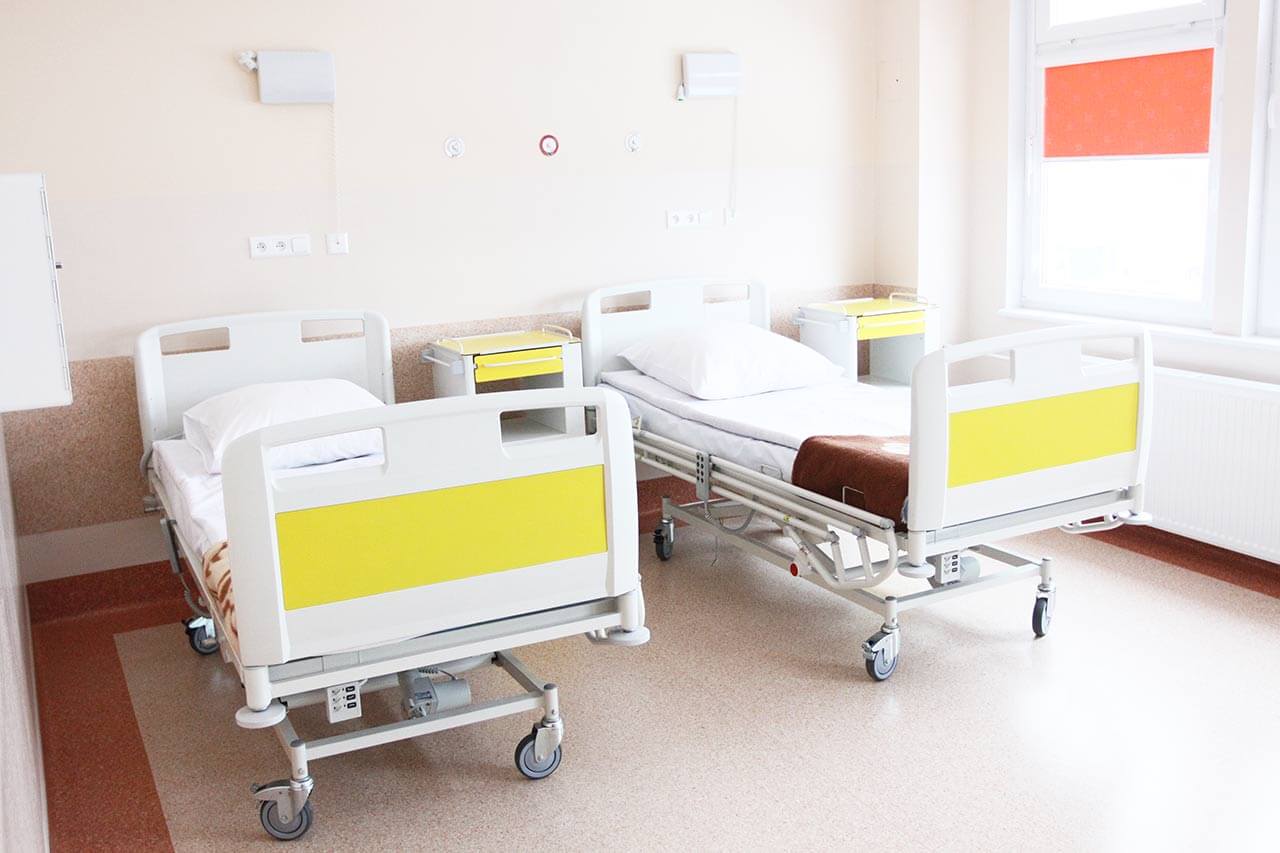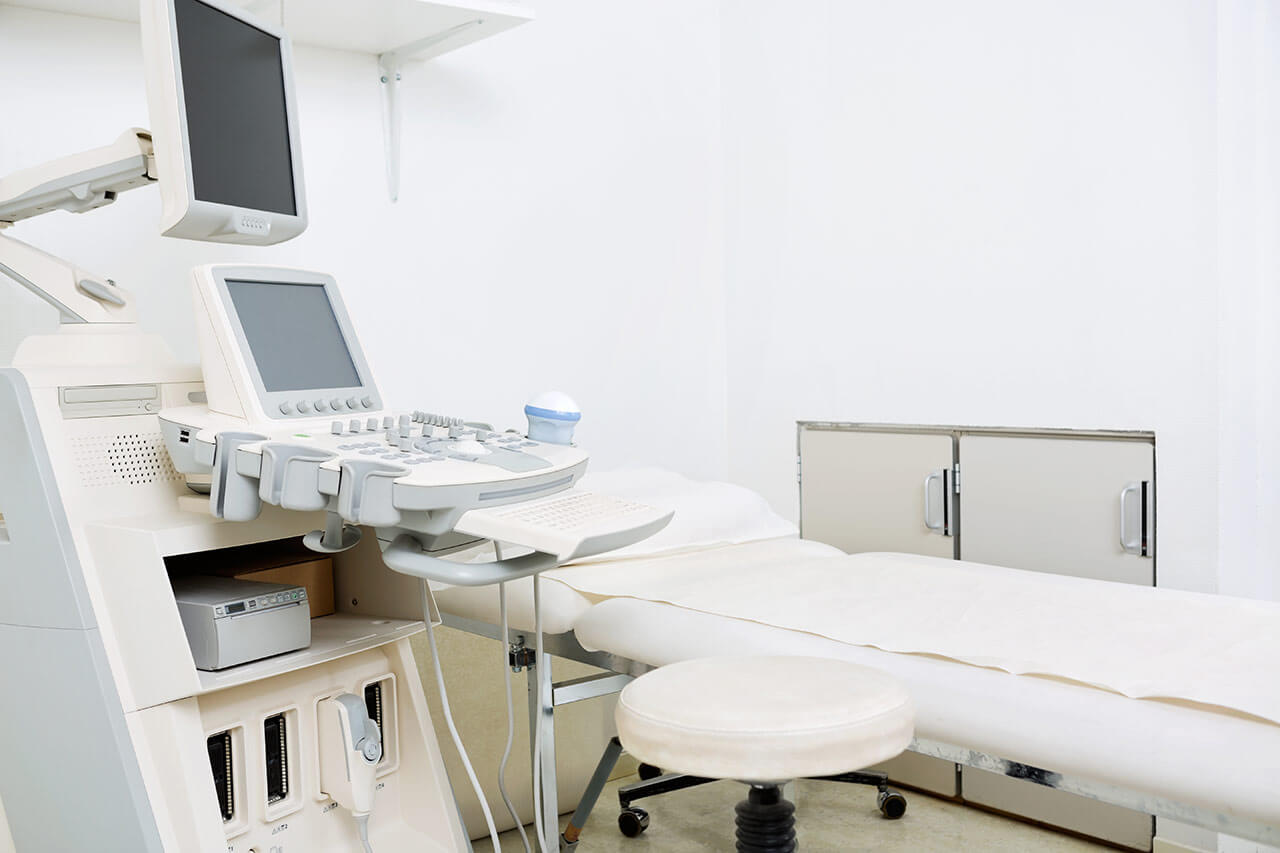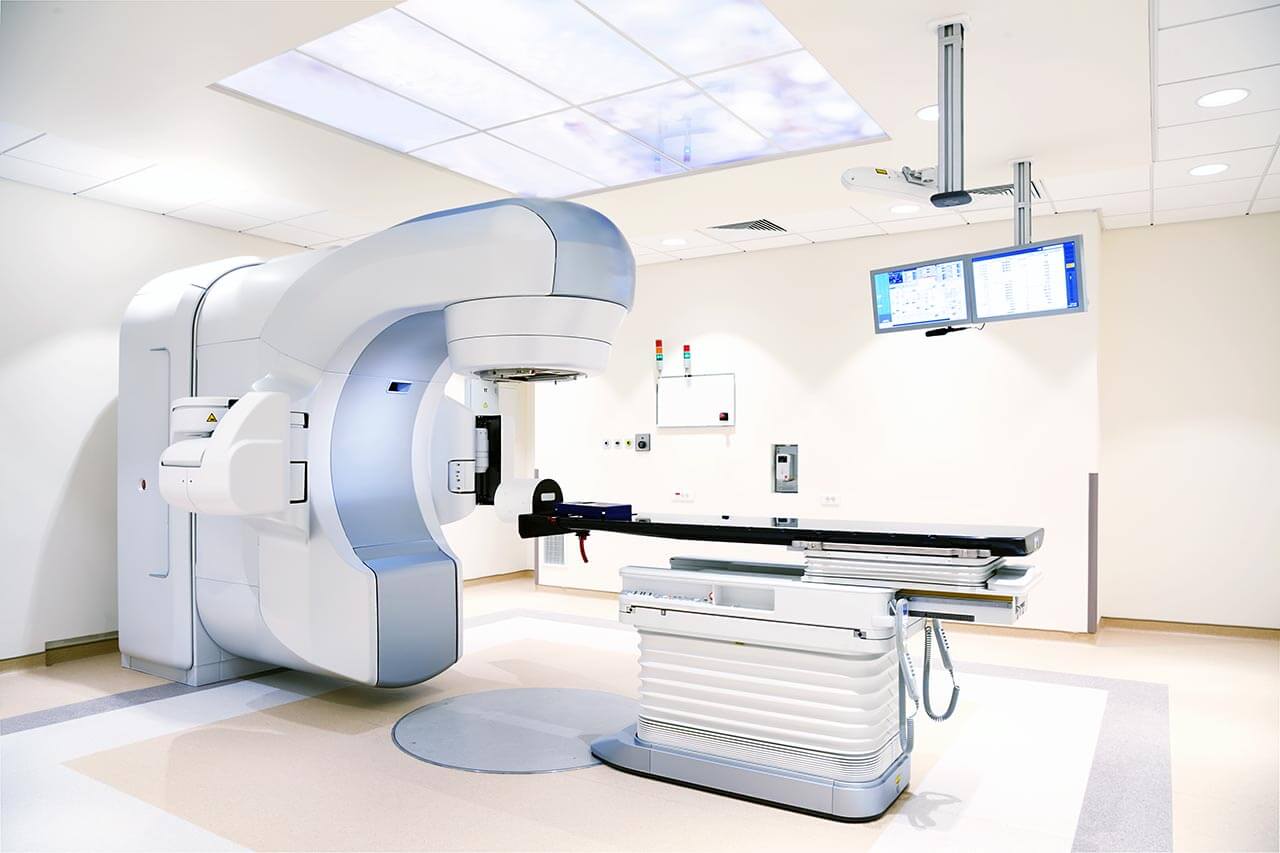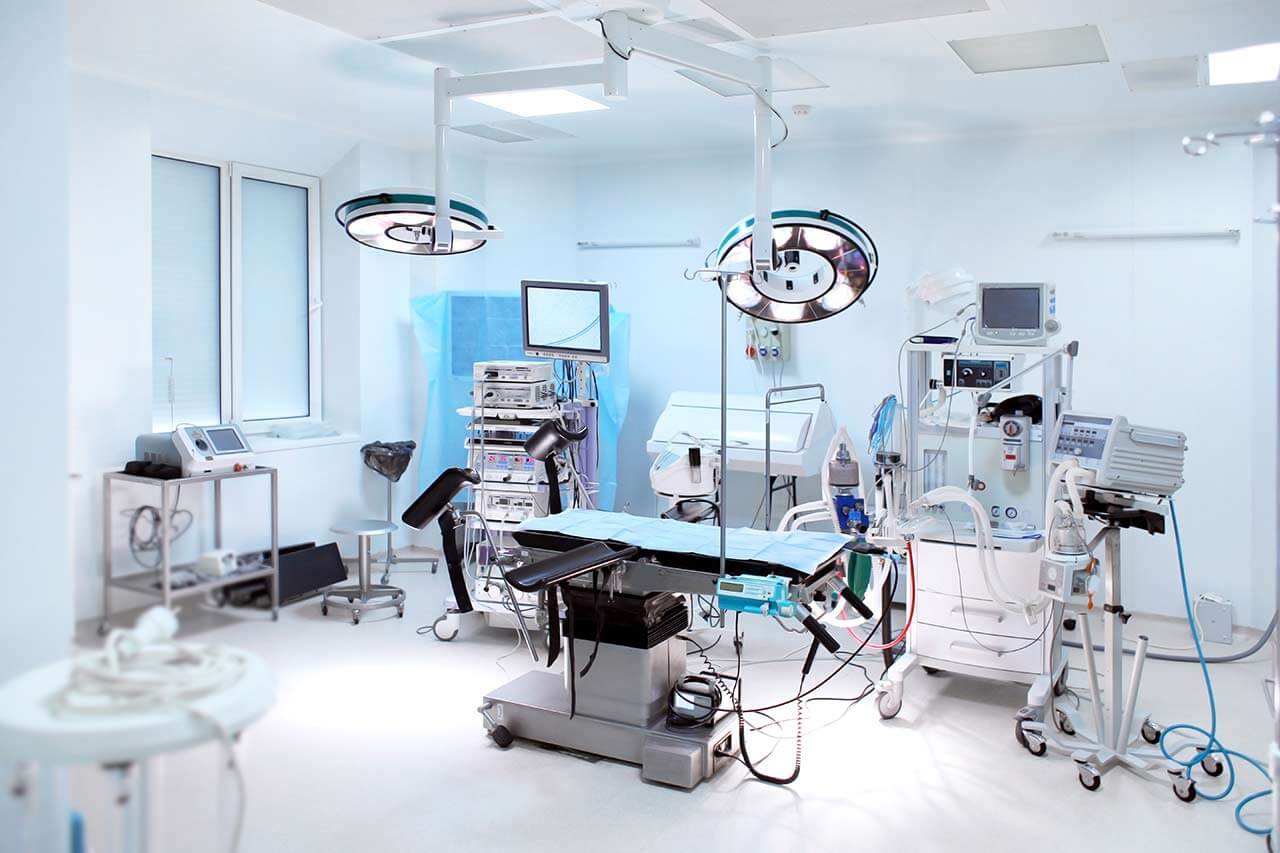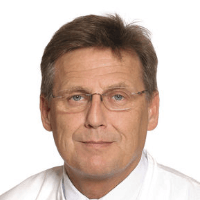
The program includes:
- Initial presentation in the clinic
- history taking
- general clinical examination
- laboratory examination:
- common blood count test
- blood chemistry test
- urine analysis
- hormonal examination (gastrin level)
- ultrasound/ MRI of the abdomen
- gastroscopy with endosonography
- biopsy and cytological examination
- consultation of related specialists
- symptomatic specific treatment
- the cost of essential medicines and materials
- nursing services
- control examinations
- full hospital accommodation
- developing of further guidance
Required documents
- Medical records
Service
You may also book:
 BookingHealth Price from:
BookingHealth Price from:
About the department
The Department of Gastroenterology, Hepatology and Infectology at the University Hospital Duesseldorf offers the full range of diagnostics and treatment of diseases of the liver, pancreas and other organs of the gastrointestinal tract. In addition, of particular interest is the treatment of cancer pathologies of the esophagus, stomach, intestines, pancreas, and liver. The Chief Physician of the department is Prof. Dr. med. Dieter Häussinger.
The department is a supraregional center for the diagnostics, research and treatment of chronic liver diseases and their complications, as well as a certified Infectiology Center, within which all types of hepatitis, HIV, and tropical infectious diseases are treated.
Together with other departments, there was established the certified Center for Intestinal Diseases. The main advantages of the center include excellent diagnostic capabilities, for example, high-tech endoscopy, sonography (with contrast enhancement) and ultrasound-guided puncture. In addition, all the common methods of functional gastroenterological diagnostics (respiratory tests, PH-meter, esophageal and rectal manometry) are used here.
The department has 10 specialized outpatient clinics equipped with all modern diagnostic and therapeutic technologies. The highly specialized doctors with long clinical experience take care of patient's health here. Many examinations are performed using sonography and sparing endoscopic techniques, which help the patients to avoid complex operations.
The main clinical focuses of the department include:
- Diagnostics and treatment of acute and chronic liver diseases and their complications
- Diagnostics and treatment of inflammatory and functional diseases of the gastrointestinal tract
- Diagnostics and treatment of gastrointestinal and liver cancers
- Diagnostics and treatment of hepatitis and HIV
- Diagnostics and treatment of congenital cholestatic liver diseases
- Diagnostics and treatment of congenital metabolic disorders
- Advice on vaccination during the travels (tropical medicine)
- Emergency medical care in tropical diseases
- High-tech endoscopy, sonography and functional diagnostics
- Other medical services
Curriculum vitae
Scientific and Professional Career
- Since 2011, Head of the Center for Hepatology and Infectiology at the University Hospital Duesseldorf.
- Since 2010, Director of the Hirsch Institute of Tropical Medicine, Adama Science and Technology University, Ethiopia.
- 2005 - 2008 Managing Director of the Center for Internal Medicine and Neurology at the University Hospital Duesseldorf.
- 2005 Additional qualifications in Infectiology, as well as the appointment as an Examiner at the Medical Association of North Rhine.
- Since 1994, Professor of Internal Medicine and Head of the Department of Gastroenterology, Hepatology and Infectiology at the University Hospital Duesseldorf.
- 1991 - 1994 Professor of the Hermann and Lilly Schilling Foundation.
- 1989 Invitation to the Department of Physiological Chemistry, University of Muenster.
- 1988 Appointment as an Extraordinary Professor at the University of Freiburg.
- 1986 - 1989 Medical Specialist in Internal Medicine/Gastroenterology.
- 1984 Habilitation, Internal Medicine
- 1977 Admission to medical practice.
- 1976 - 1977 Clinical activities at the Regional Hospital Nördlingen.
- 1977 - 1978 Lieutenant Colonel of the Navy Medical Service, 1st Submarine Squadron in Kiel.
- 1979 - 1994 Clinical activities, Medical University of Freiburg.
- 1976 Doctoral thesis defense.
- 1970 - 1976 Study of Medicine at the Ludwig Maximilian University of Munich.
Positions in Scientific Societies and Organizations
- 2015 - 2016 President of the German Association for the Study of the Liver (GASL).
- Since 2011, Presidium Member of the North-Rhine-Westphalian Academy of Sciences, Humanities and Arts (since 2016 Vice President).
- Since 2011, Council Member of the Medical Faculty of the Heinrich Heine University Duesseldorf.
- Since 2010, Senate Member of the Gottfried Wilhelm Leibniz Scientific Community.
- Since 2010, Scientific Advisory Board Member of the Boehringer Ingelheim Foundation.
- Since 2009, Member of the Board of Trustees of the Max Planck Institute of Molecular Physiology.
- 2007 - 2013 Member of the Senate Commission of the German Research Foundation for the Promotion of German-Israeli Projects.
- 2006 - 2007 Member of the Senate of the Heinrich Heine University Duesseldorf.
- 2000 - 2007 Member of the Medical Committee of the Scientific Council.
- 1998 - 2002 Dean of the Medical Faculty at the Heinrich Heine University Duesseldorf and Board Member of the University Hospital Duesseldorf.
- 1997 - 2000 Member of the Senate and Licensing Committee of the German Research Foundation for the Special Research Areas.
Awards and Honorary Memberships
- 2012 Cross of Merit, 1st class of the Order of Merit of the Federal Republic of Germany.
- 2011 Yaku Okuda Medal for Excellence in Cell Volume Regulation Research.
- 2011 Medal of Honor of the Heinrich Heine University Duesseldorf.
- 2008 ISHEN Award Padua.
- Since 2004, Member of the North-Rhine-Westphalian Academy of Sciences, Humanities and Arts.
- 2003 Medal of Merit of the Heinrich Heine University Duesseldorf.
- Since 2002, Member of the National Academy of Sciences Leopoldina.
- 2002 Dr. Robert Pfleger Research Award.
- 2001 Géza Héteni Medal.
- Since 2001, Honorary Member of the Hungarian Society of Gastroenterology.
- 1998 Kone Award of the Association for Clinical Biochemistry, Glasgow.
- 1995 Honorary Award of the Druidenorden.
- 1994 NUTRIM Prize.
- 1991 Gottfried Wilhelm Leibniz Prize of the German Research Foundation (DFG).
- 1990 Medal of the Faculty of Medicine at Okayama University.
- 1989 Tannhauser Prize of the German Society for Gastroenterology, Digestive and Metabolic Diseases.
- 1984 Friedrich Wewalki Prize.
- 1985 - 1990 Heisenberg Scholarship, German Research Foundation.
Photo of the doctor: (c) Universitätsklinikum Düsseldorf
About hospital
According to the authoritative Focus magazine, the University Hospital Duesseldorf ranks among the top Germany hospitals!
The hospital is an excellent example of a combination of high-quality health care, research and teaching activities. With more than 50,000 inpatients and about 300,000 outpatients every year, the hospital is one of the largest and most prestigious medical institutions in Germany and Europe.
Modern, safe and sparing diagnostic and therapeutic methods guarantee effective treatment of various diseases and their consequences. All therapeutic processes are based on an interdisciplinary approach, which provides comprehensive medical care and optimal treatment result. Obviously, one of the key roles in the successful clinical practice of the medical institution is played by a highly qualified medical personnel, which consists of the best world-class doctors. The hospital also has a special advantage due to the structured equipment with the innovative medical technologies.
The hospital presents almost all fields of modern medicine. Special attention should be given to such focuses as oncology and hematology, stem cell transplantation, neurosurgery and neurology, urology, obstetrics and gynecology, hepatology, kidney transplantation, vascular surgery, cardiac surgery, pediatric surgery, pediatric oncology, etc.
In addition to the outstanding quality of medical services, the hospital guarantees each patient an attentive care, friendly atmosphere, as well as sensitive and respectful attitude.
Photo: (с) depositphotos
Accommodation in hospital
Patients rooms
The patients of the University Hospital Duesseldorf live in comfortable single, double and triple rooms. The patient rooms are made in bright colors and modern design. The room furnishing includes an automatically adjustable bed, a bedside table, a wardrobe, a telephone, a multimedia device (TV, radio, Internet access), a table and chairs for receiving visitors. To use the phone and multimedia device, the patient should have a special chip card, which can be purchased at the reception. In the pediatric departments multimedia device can be used for free.
Meals and Menus
The patients of the hospital are offered a varied, tasty and healthy diet. Every day there are three menus to choose from for adults and four menus to choose from for children, while it is possible to develop an individual menu. When pre-ordering, the international patients may have dishes of various cuisines of the world, for example, Asian and African cuisine. If a patient needs a diet in accordance with the clinical indications, he will be provided with a special diet menu, including drinks.
Every day, the nurses inform the kitchen workers about the patient wishes using an electronic data processing system. Immediately before serving food, there are printed special cards, which indicate for which patient this or that dish is intended.
Also, the hospital houses a cafeteria with a rich selection of delicious, healthy dishes, snacks and drinks.
Further details
Standard rooms include:
Religion
Christian priests are available for the patients at any time. Representatives of other religions may be requested at any time.
Accompanying person
Your companion may stay with you in your room or at a hotel of your choice during the fixed program.
Hotel
You may stay at the hotel during the outpatient program. Our employees will support you for selecting the best option.
The hospital offers a full range of laboratory tests (general, hormonal, tests for infections, antibodies, tumor markers, etc.), genetic tests, various modifications of ultrasound scans, CT scans, MRI and PET / CT, angiography, myelography, biopsy and other examinations. Treatment with medications, endoscopic and robotic operations, stereotaxic interventions is carried out here, modern types of radiation therapy are also used. The hospital offers patients all the necessary therapeutic techniques.
- Dermatosurgery
- Skull base surgery
- Gastric bypass and bandage
- Removal of lung metastases
- Interventions on the spine
These are skin cancer (including melanoma), head and neck tumors, pathological changes in the chest (including funnel chest), obesity, liver diseases, HIV and other infectious diseases, varicose veins, aortic aneurysm, carotid artery stenosis, joint diseases and other pathologies.
- Dermatology
- Oncology
- Otorhinolaryngology
- Endocrinology and diabetology
- Orthopedics and traumatology
Over 800 highly qualified physicians work at the hospital.
